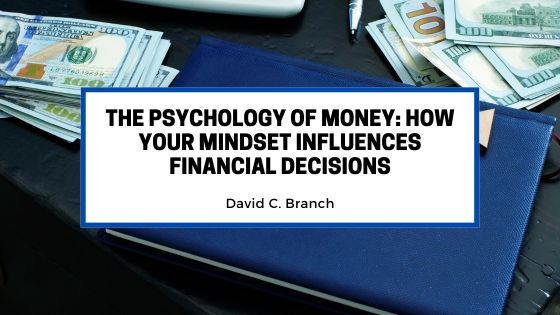Money is not just about numbers on a spreadsheet. While financial literacy and investment strategies matter, the way we think and feel about money plays an equally important role in shaping financial outcomes. Our mindset, past experiences, and emotional triggers often influence the financial decisions we make more than we realize. Understanding the psychology of money can help us make smarter choices and build healthier financial habits.
Money and Emotions
Financial decisions often involve more emotion than logic. Fear, greed, and overconfidence can drive behavior in ways that undermine long-term goals. For instance, fear of loss can cause people to sell investments too quickly during market downturns, locking in losses rather than waiting for a recovery. On the other hand, greed can lead to chasing hot stocks or risky investments without proper analysis. Recognizing these emotional triggers is the first step toward managing them.
The Role of Early Experiences
The way we view money is often shaped in childhood. If someone grew up in a household where money was scarce, they may develop a scarcity mindset, leading to excessive saving or fear of spending. Others raised in environments of financial abundance may be more inclined to take risks or view money as easily replaceable. These early experiences can linger into adulthood, influencing financial behaviors like saving, spending, and investing.
Cognitive Biases in Financial Choices
Beyond emotions, cognitive biases also affect financial decisions. Some common ones include:
-
Confirmation bias: Seeking information that supports existing beliefs, such as only reading positive news about a stock one owns.
-
Anchoring bias: Relying too heavily on the first piece of information encountered, such as assuming a stock is cheap because it was once higher in price.
-
Herd mentality: Following the crowd without independent analysis, which often leads to buying high and selling low.
Being aware of these biases allows investors to take a step back and question whether their decisions are truly rational.
Building a Healthy Money Mindset
Developing a balanced mindset around money involves self-awareness and intentional habits. Here are a few strategies:
-
Set clear goals: Having specific financial objectives makes it easier to stay disciplined and avoid impulsive decisions.
-
Automate good behavior: Automating savings and investments reduces the temptation to spend and keeps progress consistent.
-
Educate yourself: Financial literacy can help separate fact from emotion, reducing the influence of fear and bias.
-
Practice mindfulness: Pausing before making financial choices helps avoid knee-jerk reactions driven by emotion.
Conclusion
The psychology of money reminds us that financial success is not only about earning more or investing wisely. It is also about understanding how our mindset shapes the decisions we make every day. By recognizing the emotional and psychological factors at play, we can create healthier financial habits and make choices that support long-term stability and growth.

